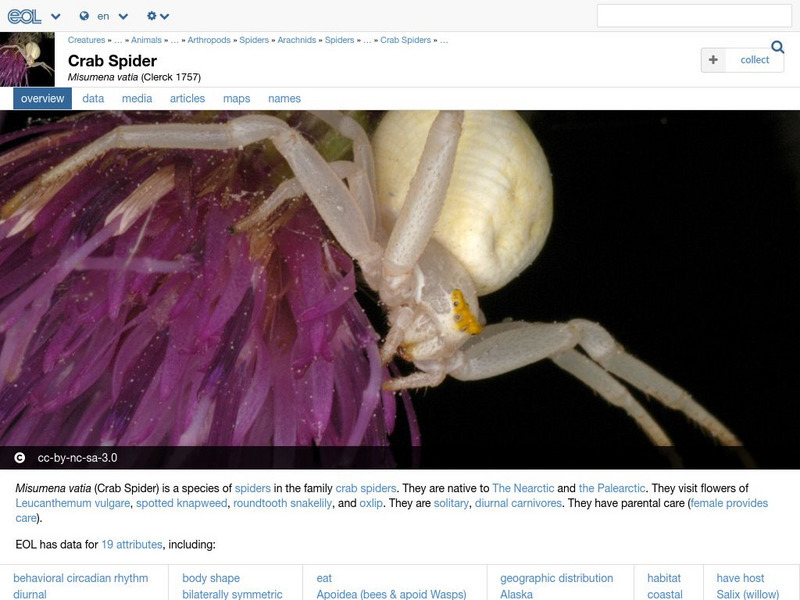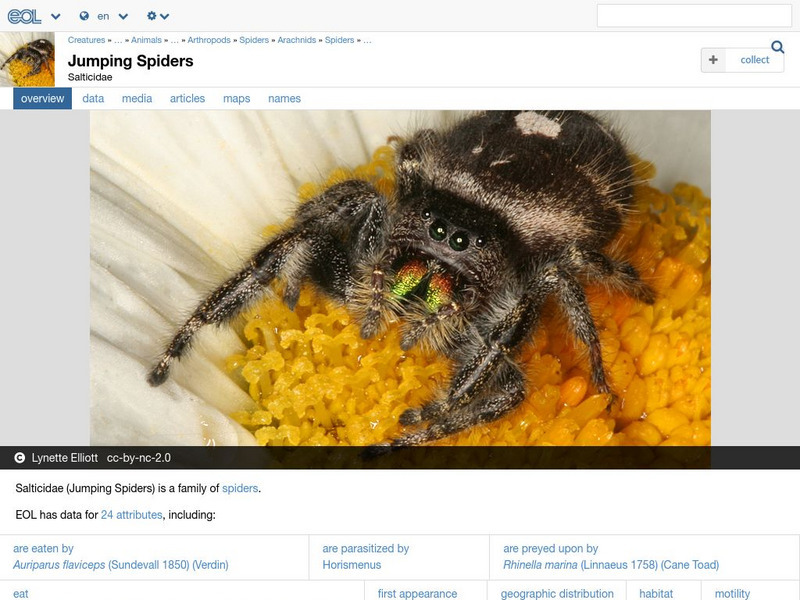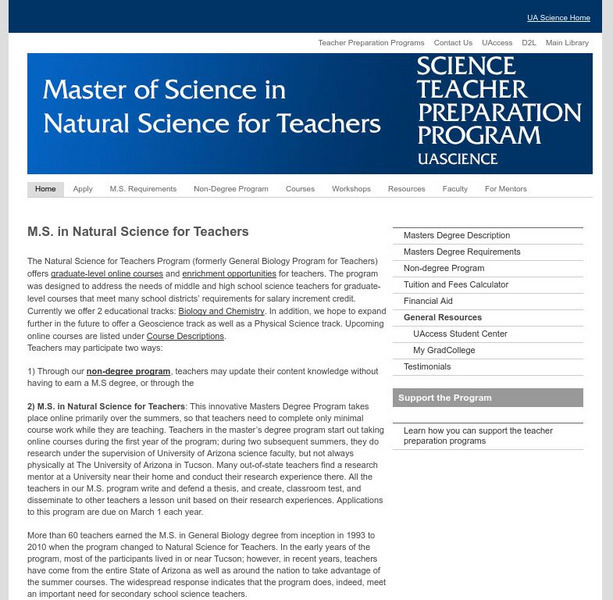Other
Araneae, Spiders of North West Europe: Purse Web Spiders
A detailed description of the primitive purse-web spider. Includes pictures and information on how it catches its prey
Other
Araneae, Spiders of Europe: Family Amaurobiidae
Multiple colorful pictures bring this web site to life. Contains information on the mating and preying habits of the amaurobiidae, otherwise known as the tunnel weavers.
Other
Araneae, Spiders of North West Europe: Crab Spiders
A study of the crab spider family eusparassidae. includes a pictomentary of the growth of a Micrommata virescens.
Other
Araneae, Spiders of Nw Europe: Crab Spiders
A description of several types of crab spiders complete with impressive pictures.
Other
Araneae, Spiders of North West Europe: The Black Widow
This site contains information on the black widow's family. Includes information and pictures on the entire family, not just the black widow.
Other
Araneae, Spiders of North West Europe: Sheet Web Spider
A site containing a myriad of pictures on the sheet web spider along with a commentary on aspects of the family.
Other
Araneae, Spiders of North West Europe:the Jumping Spider
A complete site on the jumping spider. Site contains many spider images.
Other
Catch the Science Bug: Spider Search [Pdf]
Preserve a spider web then go on a search for the different kinds of spiders that live in your area. Do research to help you fill out the data collection sheet.
NC State University
The Engineering Place: Webs and Spiders
A lesson plan where young scholars make a large spider web using yarn, and a spider out of pipe cleaners and yarn.
Encyclopedia of Life
Encyclopedia of Life: Flower Spider
The Encyclopedia of Life presents this in-depth overview of Flower Spiders (Misumena vatia), including their habitats, size, conservation status, and much more. Images of this species and maps of its global distribution can also be found...
Encyclopedia of Life
Encyclopedia of Life: Jumping Spiders
The Encyclopedia of Life presents this in-depth overview of Jumping Spiders (Salticidae), including their habitats, size, conservation status, and much more. Images of this family and maps of its global distribution can also be found here.
University of Arizona
Univ. Of Az: Spiders: An Organism for Teaching Biology
Students capture spiders and then conduct various experiments to identify their spider, analyze its feeding rate, and discover its effect on populations of insects. Includes directions for student activities and teaching tips.
PBS
Pbs Teachers: Scientific American: Spiders! Amazon Tales
Explore several spider species and learn about their adaptations to the world around them. Design a new species of spider, with adaptations required to survive in a particular habitat.
PBS
Pbs Teachers: Scientific American: Spiders! Spider Canyon
Investigate funnel-web spiders and their ability to adapt in order to survive. Make a set of spider trading cards that will include information about a spider's behavior, habitat and adaptations.
PBS
Pbs Teachers: Scientific American: Spiders! Song and Dance
Explore the diversity and prevalence of spiders around the world, and learn about jumping spiders, hunters that stalk their prey and pounce from a distance. Research the types and population density of spiders that live around you.
PBS
Pbs Teachers: Scientific American: Spiders! Spin, Spin, Spin
Investigate the use of computers to simulate spider behaviors to learn more about how and why spiders build webs. Build a model of a web to compare your eyesight and dexterity to a spider's, then compare the elasticity and strength of...
PBS
Pbs Teachers: Scientific American: Spider Web Making Stratagems
Investigate spiders in Panama that use UV-reflecting silk in their webs to attract their prey. Build a device that traps flying insects, experimenting with different light sources to choose the best lure.
National Pest Managment Association
Pest World for Kids: Pest Guide: Spiders
Essential information about the physical characteristics, diet, habitat, and impact of the black widow spider and the brown recluse spider.
Songs for Teaching
Songs for Teaching: Arachnids
At this site from Songs for Teaching, Dennis Westphall sings a great song that tells the characteristics of a spider. It even points out traits of specific spiders such as the black widow.
Teachers.net
Teachers.net: Why Spiders Don't Get Caught in the Web
In this lesson plan students listen to clues to determine that a mystery animal is a spider. After hearing the many clues, they will have learned many spider facts.
HotChalk
Hot Chalk: Lesson Plans Page: Parts of a Spider
This simple lesson plan is designed to introduce young scholars to the structure of a spider and to classify spiders according to observable attributes and habitats.
Saint Louis Zoo
Saint Louis Zoo: Black Widow
Discover fun facts and learn about the habitat, behavior, and appearance of the black widow.
Other
Arizona Sonora Desert Museum : Animal Fact Sheet: Tarantula
This fact sheet on tarantulas provides details on physical characteristics, range, habitat, conservation, diet, reproduction, and other quick facts.


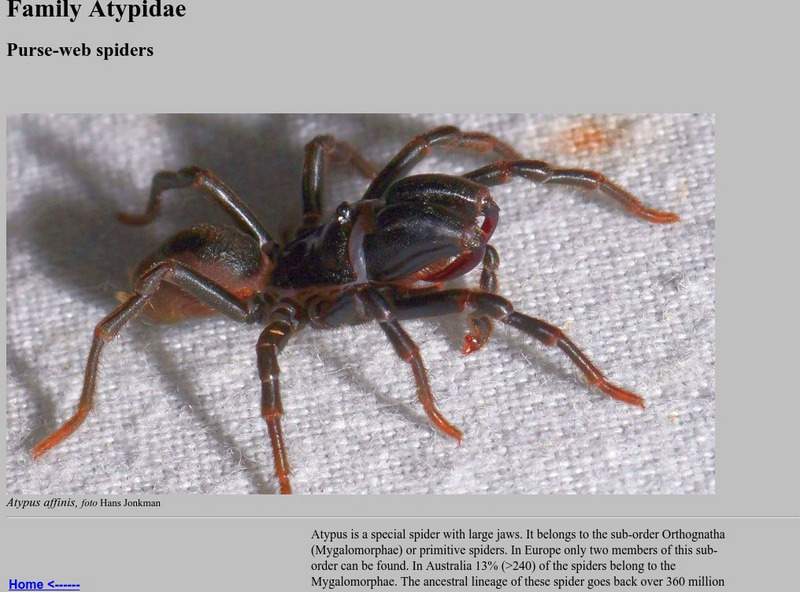



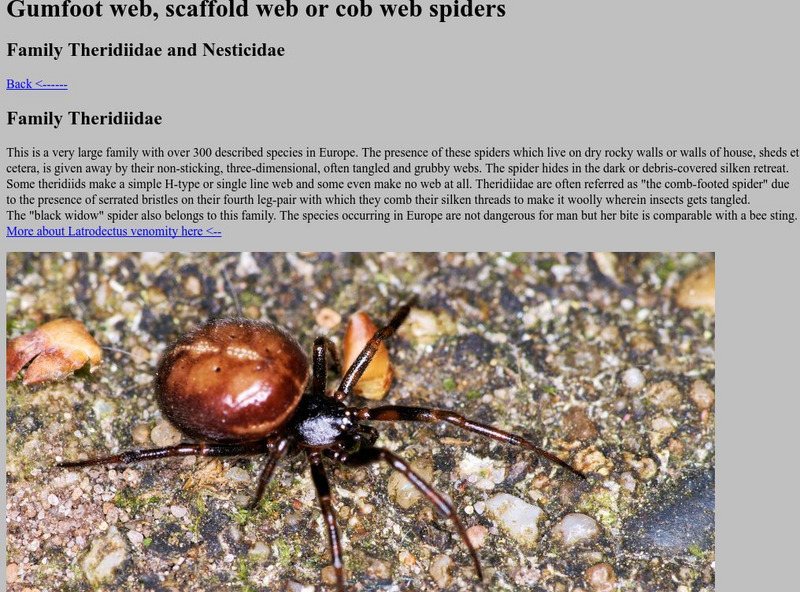


![Catch the Science Bug: Spider Search [Pdf] Activity Catch the Science Bug: Spider Search [Pdf] Activity](https://d15y2dacu3jp90.cloudfront.net/images/attachment_defaults/resource/large/FPO-knovation.png)
